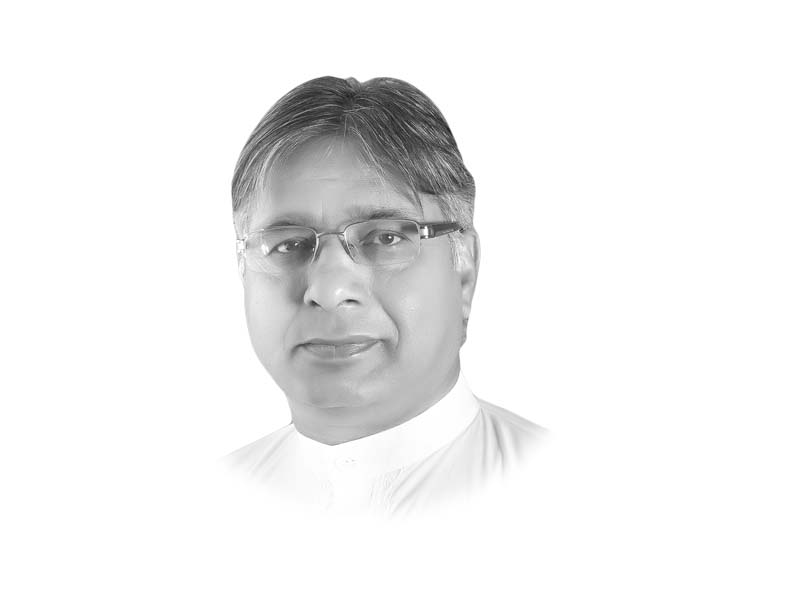
Pakistan was not an exception to flawed handling of the issue of official corruption. The experience also teaches that the extra constitutional removal of governments entailed bringing the sacked governments back to power in several countries. Mrs Chandrika Kumaratunga in Sri Lanka, Mrs Haseena Wajid and Mrs Khailda Zia in Bangladesh have been charged and voted back to power. The people of Thailand elected Ms Yanglik to the premiership in 2011, in place of her brother Mr Thaskin Shinawatra who had been deposed and exiled in 2006. In India, that has claims of being largest democracy, Ms Jayalalitha, was reelected as chief minister of Tamil Nadu even after her disqualification in 2014 by a court for holding ‘disproportionate assets’. On the contrary, the electoral defeat of Mr Mahinda Rajapaksa, the president of Sri Lanka in 2015 was a lesson in peoples’ power and capabilities.
We trust the Supreme Court will handle the matter with utmost care, yet the political crisis may reemerge if the stakeholders continue to position themselves according to their specific viewpoints. Therefore the value of having a neutral arbitrator can remain underutilised if the stakeholders fail to come to a shared understanding about how to deal with the issue of corruption, without missing out on the rest of the challenges that country is facing.
The Panama leaks also underline that corruption, a misuse of authority for financial gains, is a global issue. Countries have adopted variety of ways, suitable to their situations and interests, to handle this without copying Iceland or United Kingdom or India. In Pakistan’s context daunting challenges vis-a-vis security, economy, governance and foreign relations require equal, if not more, attention of all stakeholders, particularly of a government that is expected to perform on these fronts.
While focusing on accountability, one cannot lose sight of the demands of stability in Pakistan. Countries salvaging themselves from violent conflicts and dictatorial dispensations have to keep a balance between the interests in administering justice and building peace. Hence, the idea of transitional justice, a form of justice that takes the special context of the country into account in the standards of justice and dispensation thereof. Transitional Justice does not necessarily mean soft justice but has been applied to dealing with white-collar crimes as well internationally. Hence, amnesties and bail outs have been devised to ensure that accountability does not destabilise the economy, etc.
The National Reconciliation Ordinance (NRO) 2007 evidently maintained partiality hence it is basically an example of abuse of the ideas of transitional justice and reconciliation. The NRO failed to separate politically motivated cases, which should have been dropped anyhow, from those which dealt with heinous crimes and corruption. The Supreme Court in 2009 held NRO null and void which caused a disdain among the public about the principle of transitional economic justice.
The potential of National Accountability Bureau (NAB) also remains underutilised because, among others factors, the opinion makers failed to appreciate the reconciliatory aspect of dealing with corruption in an institutional but corrective way.
For future, a fresh legislation or amendment to the Pakistan Commission of Inquiry Act 1956 seems urgent in order to empower such commissions to hold inquiries independently, to make respective reports public and ensure implementation of the recommendations.
Nevertheless the terms of reference, being worked out for special commission to deal with Panama leaks should reflect not only the judicial and legal wisdom but also political wisdom. The leadership should use the experiences across the countries to come to amicable solutions rather than applying the illusionary and self-righteous notions of justice.
Apart from the accountability in the Panama leaks it is important that people are educated by the leadership, about ways and understanding of justice which emancipates society from greed for power and possession rather than reinforcing these tendencies by putting a few examples on display.
Published in The Express Tribune, November 8th, 2016.
Like Opinion & Editorial on Facebook, follow @ETOpEd on Twitter to receive all updates on all our daily pieces.

1732569774-0/Baymax-(2)1732569774-0-165x106.webp)










COMMENTS (2)
Comments are moderated and generally will be posted if they are on-topic and not abusive.
For more information, please see our Comments FAQ